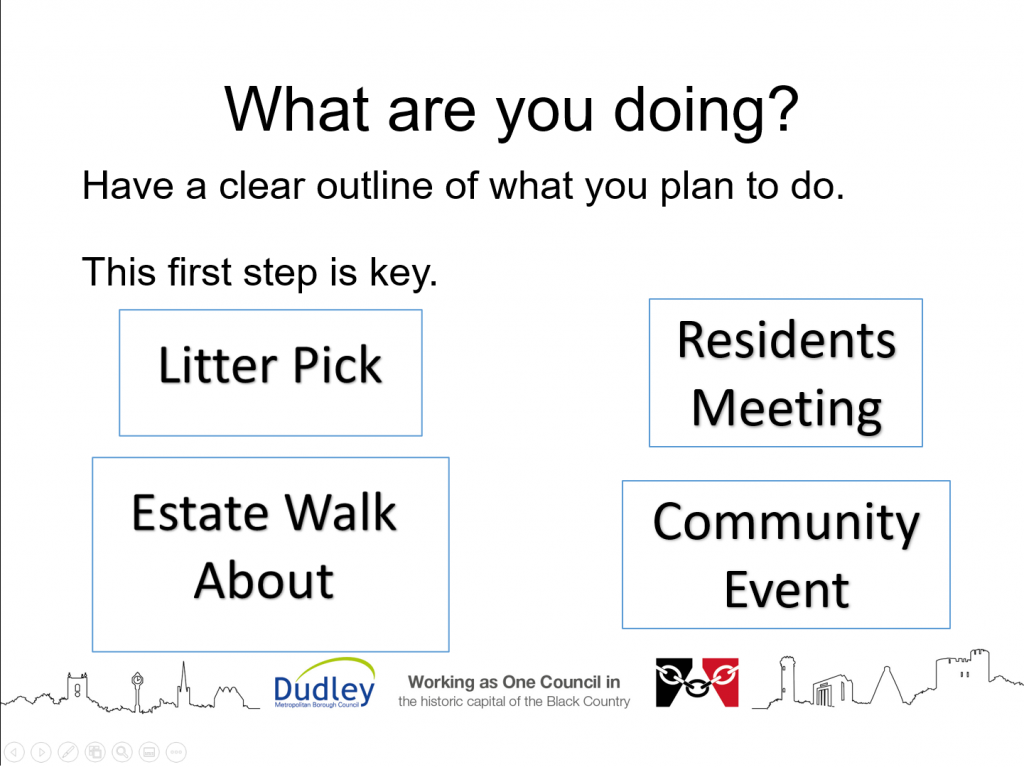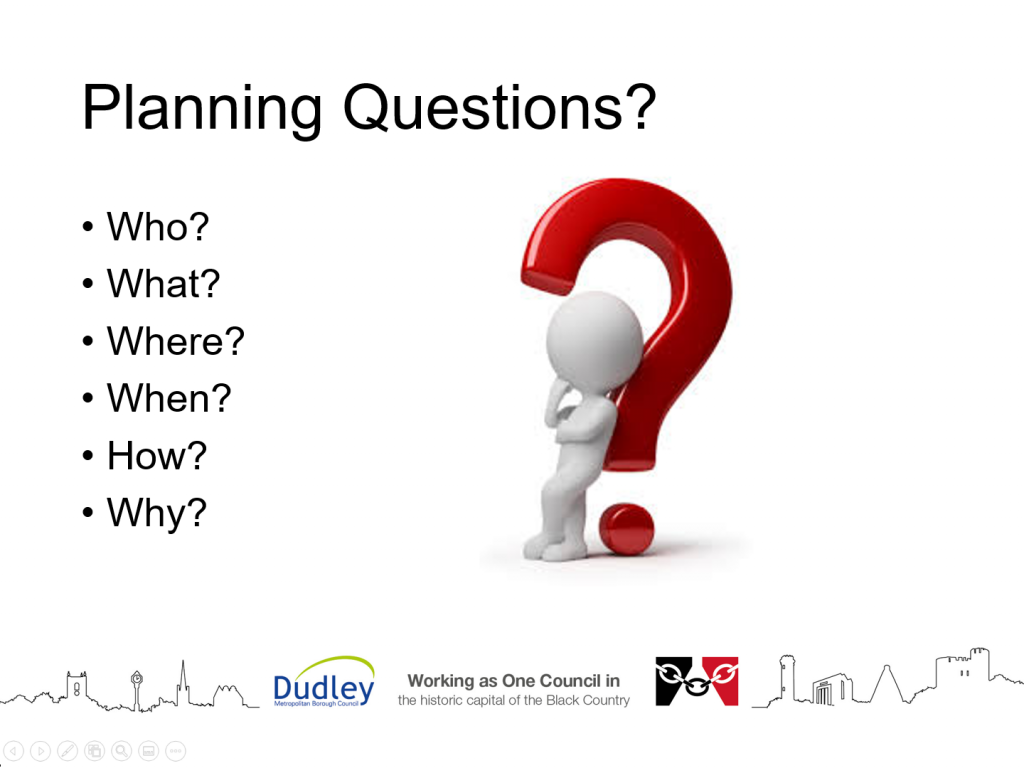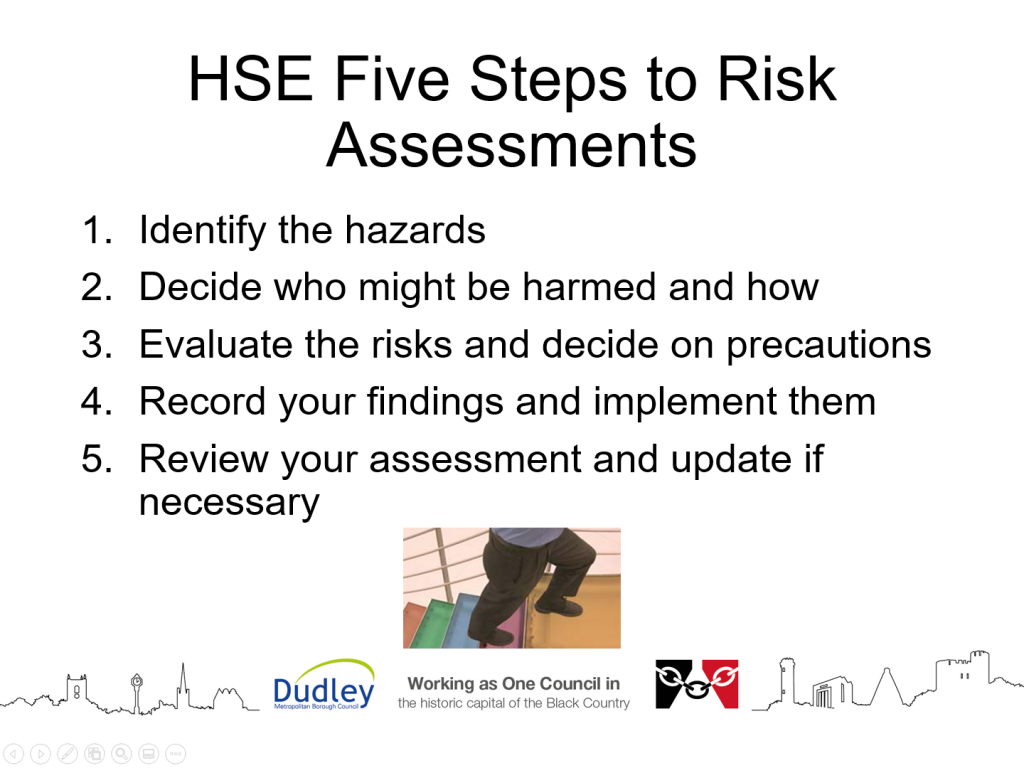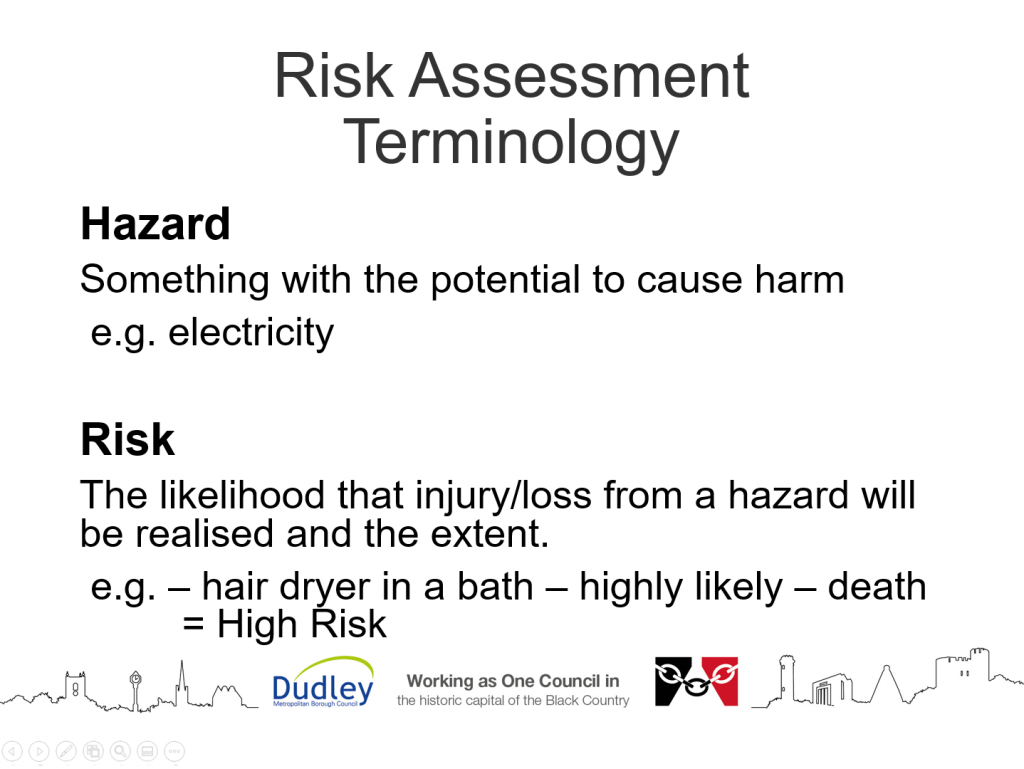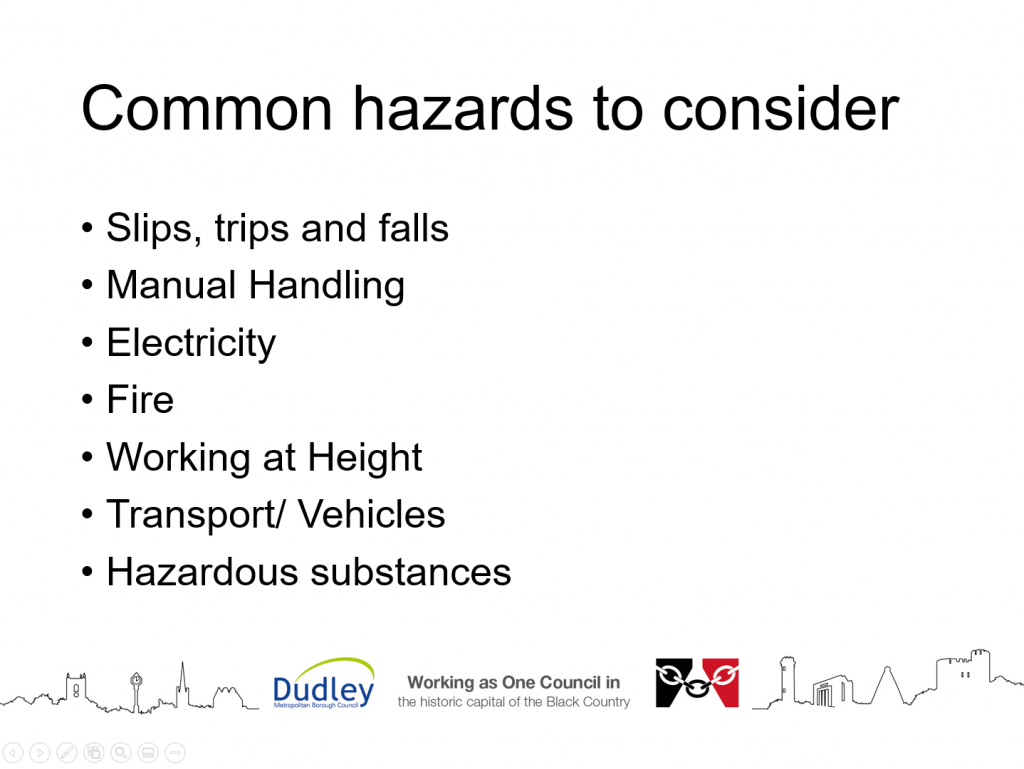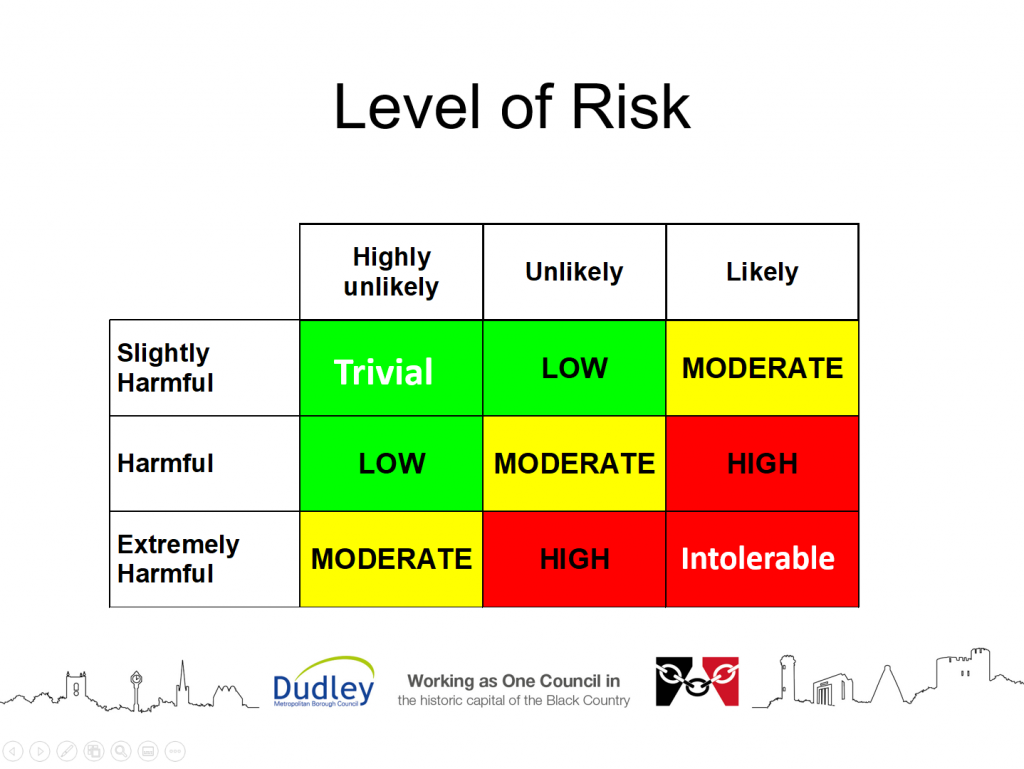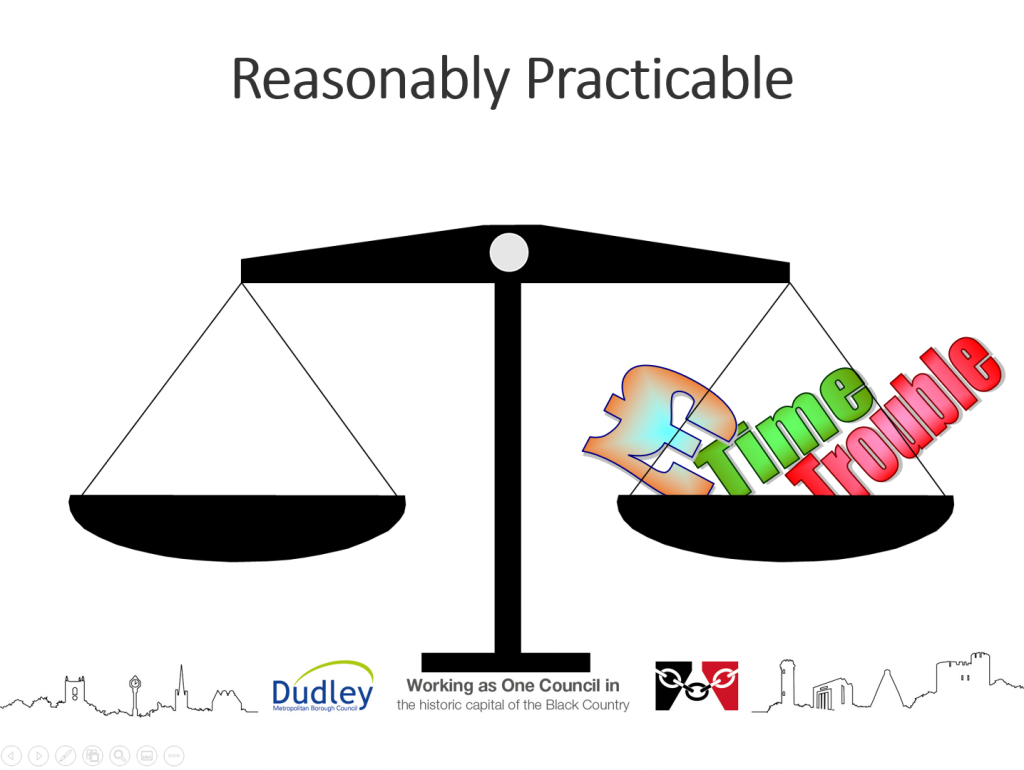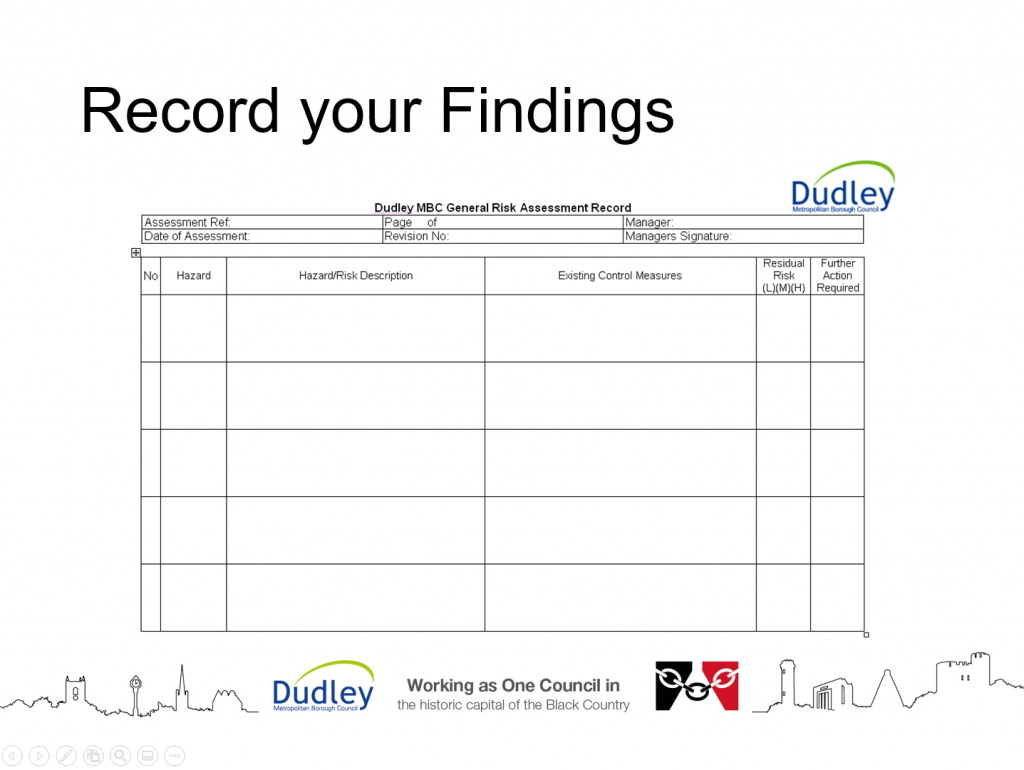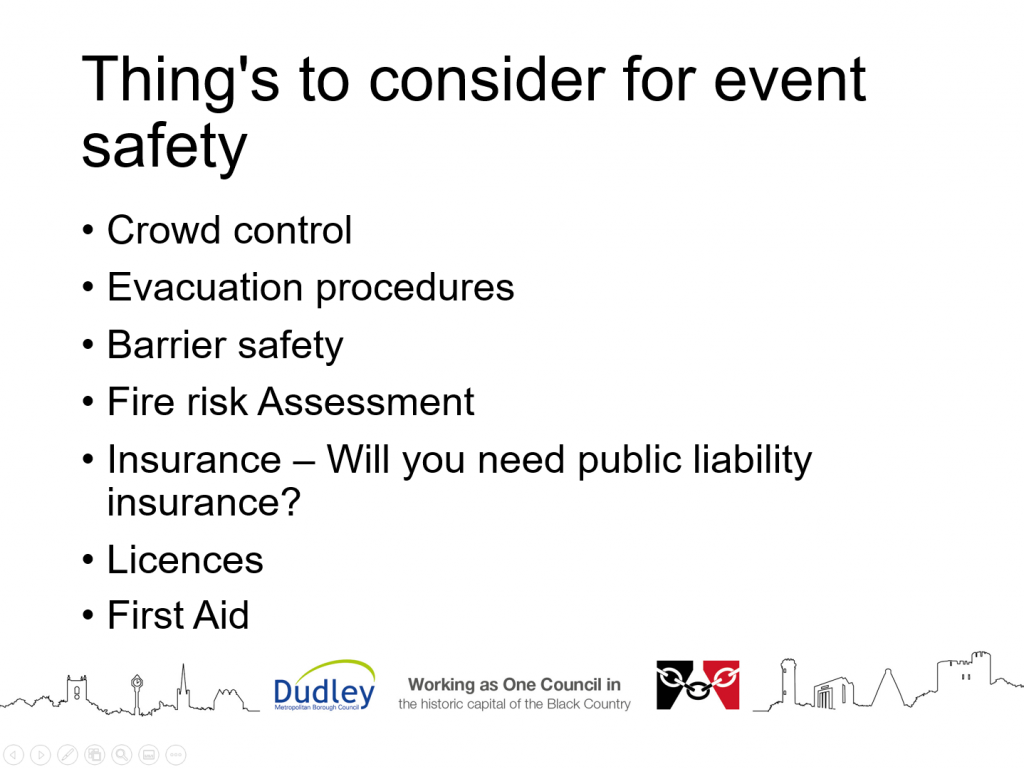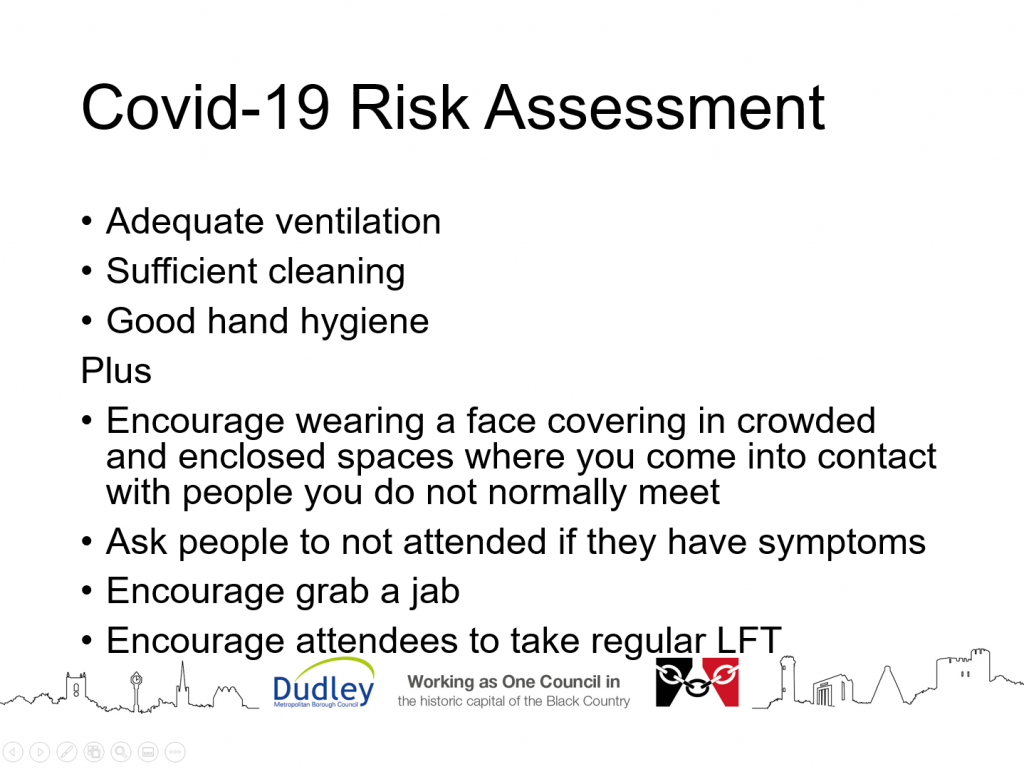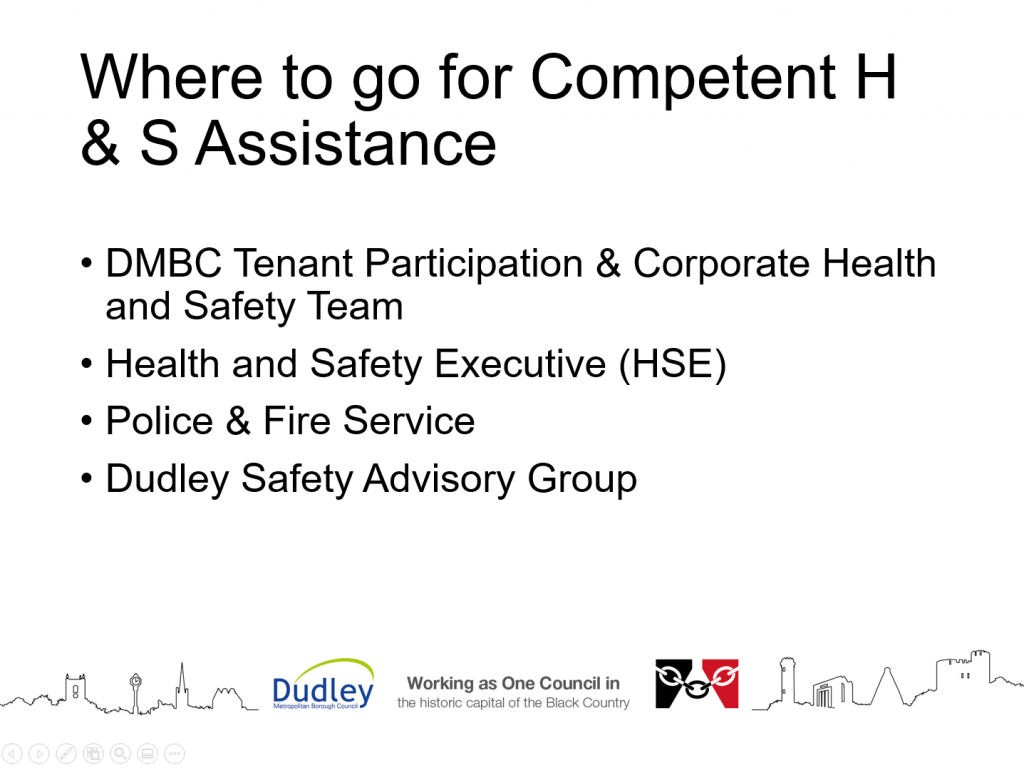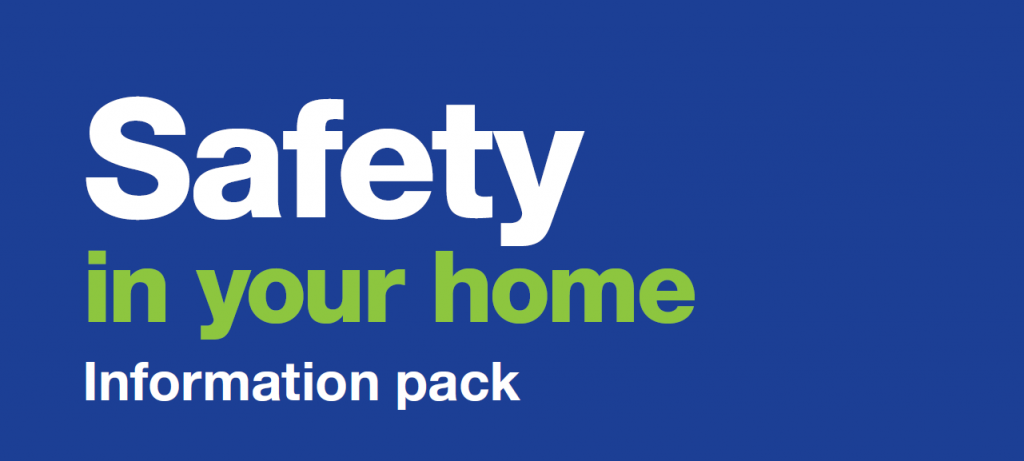Risk Assessments for TRA groups – September 2021
In September’s Coffee & Catch up event, we were joined by Karen Evans who is a Principal Health & Safety Officer at Dudley Council. She provided some excellent information for TRAs to assist them in knowing how risk assessments work and some of the risk to look out for.
We know it can seem daunting but we hope that Karen’s informative slides provide you with some reassuring information. Remember, you’re not alone in carrying out the Risk Assessments, your Participation Officer will be able to assist, as well as Dudley Federation should you need us.
The TRA focus group had formulated specific questions to be discussed with the guest speaker at the Coffee and catch-up session, Karen Evans. As a presentation was prepared, Karen completed the questions before the sessions
The questions are written in bold, and Karen has provided her answers in italic.
- Is there a generic risk assessment that all TRAs can use? No, there is not a generic one. There is a blank template that can be provided but it is important to evaluate each venue/event individually
- Who needs a copy/where should they be sent? This would depend on what they were doing. For example, a large event may need to go to the Dudley Safety Advisory Group (SAG) but a Litter Pick. This would this be the Participation Development Officer or Housing Manager.
- Who is responsible for completing risk assessments chair, secretary? A risk assessment should involve a number of people and ideally be led by someone with some experience of completing risk assessment who can take responsibility for completing the risk assessment, support can be given by the Participation Team if there is no one with experience.
- Should TRAs be doing risk assessments before every meeting? A regular meeting may not need an assessment if there are no significant risks or you may have an assessment that covers general meetings that can just be review on a regular basis rather than doing a risk assessment before every meeting, there may however already be a risk assessment in place for the location they are using that covers all the general risks associated with the site and control measure that you should be aware.
- If something goes wrong what should we do? deal with the immediate situation -raise the alarm, get assistance etc then report the incident to relevant parties this may be insurers or the Housing Manager dependant on who organised the activity, this should prompt a review of the risk assessment.
- What if this isn’t on the risk assessment, are we liable? This depends if what occurred was foreseeable and may be decide in a court – for example someone sitting on a broken chair and injuring themselves maybe foreseeable and it is reasonable to expect we may check the condition of the furniture before a meeting, however if car veers off the road after the driver suffers a heart attack and drive across open ground and a path in to the building which causes the window to fall out and land on someone’s foot that may not be seen as foreseeable.
- Where do we stand if we hold a TRA meeting, everyone who attends gets Covid – are we liable? It will depend on what controls we put in place and how well we managed them, for example one control is to ensure good ventilation so if we identify ventilation as a control in our risk assessment then someone decides to close all the windows as they are a bit cold then we may be seen to be at fault for failing to ensure the controls remained in place.
- Do we need to have a disclaimer notice – personal choice to attend statement? You should share your risk assessment with attendees, and they can then decide if they feel comfortable attending – I assume there is no requirement to attend so there is already an element of personal choice.
- Do we need QR poster? QR codes are no longer a legal requirement however NHS and in addition to this if you are aware of who is attending the meeting you are should be able to contact anyone who may have become a close contact if they need to be advised.
- Ask attendees to LFT and wear a mask – Government guidance states “Consider encouraging the use of face coverings by workers (for example through signage), particularly in indoor areas where they may come into contact with people they do not normally meet. This is especially important in enclosed and crowded spaces.” And with LFT Guidance is recommending all participate in regular twice weekly LFT Testing.
- Providing refreshments – is it a good idea? During this time, it is important to think about avoiding people queuing close together, having an individual being responsible for cleaning equipment between use etc. this is something that is not recommended currently but individuals are welcome to bring their own drinks.

